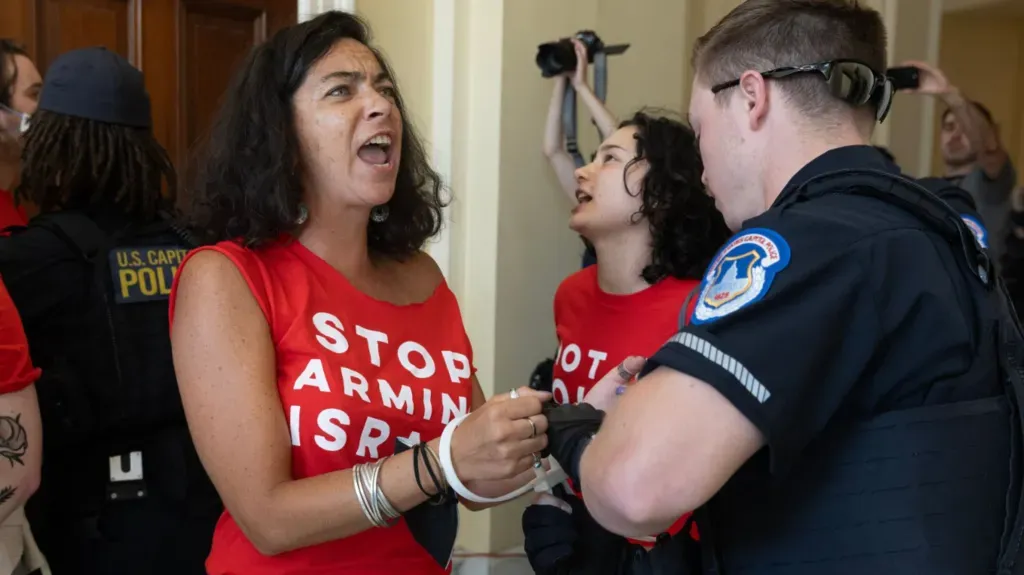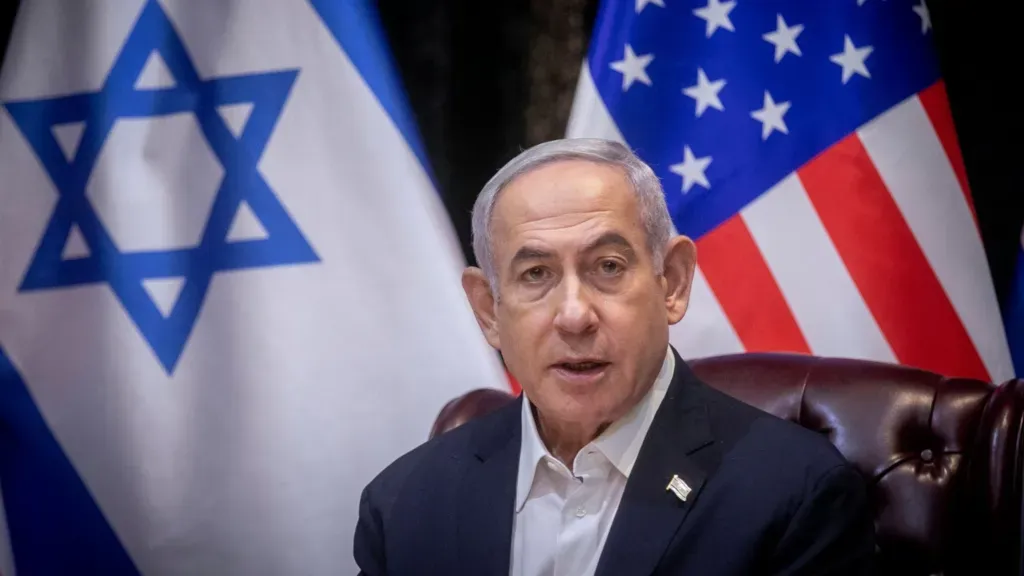Introduction
In a pivotal moment for international diplomacy, Israeli Prime Minister Benjamin Netanyahu is set to address a joint session of the U.S. Congress. This speech marks Netanyahu’s first visit to the United States since the onset of the ongoing conflict with Hamas, and it comes at a time of heightened scrutiny and controversy. The address aims to solidify U.S. support for Israel’s military actions in the Gaza Strip and navigate the complex landscape of U.S. domestic politics, marked by significant opposition and protest.
Netanyahu’s Strategic Visit to Washington
Context of the Visit
Netanyahu’s trip to Washington is strategically timed to bolster support for Israel’s actions in the Gaza Strip. The invitation from Speaker of the House Mike Johnson underscores the Republican Party’s commitment to a strong alliance with Israel. This visit comes at a critical juncture, with the ongoing conflict drawing intense international attention and debate.
Netanyahu’s speech is intended to present Israel’s perspective on the conflict, which began nearly ten months ago following a severe escalation of violence. The prime minister has framed his address as an opportunity to convey “the truth about our just war,” aiming to garner continued support from American lawmakers and the public.
Meeting with U.S. Leaders
Following his Congressional address, Netanyahu’s itinerary includes meetings with key U.S. political figures. He is scheduled to meet President Joe Biden and Vice President Kamala Harris, followed by a separate engagement with Republican presidential candidate Donald Trump. This series of high-profile meetings reflects the importance of the visit for Netanyahu and his administration.
Trump’s public statement, looking forward to welcoming “Bibi Netanyahu” at Mar-a-Lago, highlights the support he extends to the Israeli leader, contrasting with the growing criticism Netanyahu faces from other quarters.
Domestic and International Pressure on Netanyahu
Legal and Diplomatic Challenges
Netanyahu’s visit occurs against a backdrop of increasing legal and diplomatic pressures. In May, International Criminal Court (ICC) Prosecutor Karim Khan sought arrest warrants for Netanyahu, Israeli Defense Minister Yoav Gallant, and several Hamas leaders on charges of crimes against humanity and war crimes. The move has been met with outrage from both Israel and Hamas, adding to the complexity of the conflict.
Additionally, the International Court of Justice recently declared Israel’s occupation of Palestinian territories as “illegal,” a ruling that Israel has rejected. This international condemnation exacerbates the pressure on Netanyahu, who must navigate these legal challenges while maintaining his position on the global stage.

Domestic Criticism and Protests
Netanyahu’s approach to the conflict has sparked significant domestic criticism, particularly from within the U.S. political sphere. Over 30 Democratic lawmakers, including prominent figures like former House Speaker Nancy Pelosi, have announced their decision to boycott Netanyahu’s speech. Their absence highlights a deep divide within U.S. politics regarding the U.S.’s role and stance on the Israel-Hamas conflict.
Senator Dick Durbin and Senator Bernie Sanders are among those expressing their discontent. Durbin, while supportive of Israel, has voiced his reluctance to endorse Netanyahu’s current policies. Sanders has criticized Netanyahu’s actions in Gaza and the West Bank, calling for condemnation of his approach and a more balanced view on the two-state solution.

The Political and Humanitarian Landscape
Israel’s Military Campaign
The conflict between Israel and Hamas escalated dramatically on October 7, 2023, when Hamas launched a large-scale attack on southern Israel, resulting in approximately 1,200 deaths and the kidnapping of 251 individuals. In response, Israel initiated a military campaign aimed at dismantling Hamas’ infrastructure and capabilities. This campaign has led to over 39,000 deaths in Gaza, as reported by the territory’s health ministry. The figures do not distinguish between combatants and civilians, adding to the humanitarian concern surrounding the conflict.

Protests and Public Sentiment
Netanyahu’s visit has been met with a wave of protests in Washington. More than 30 Democratic lawmakers have announced their boycott of the speech, reflecting a broader discontent with U.S. policy toward Israel. Additionally, Jewish American peace activists have staged protests, denouncing the continued support for Israel amid the ongoing violence.
The World Health Organization’s recent warning about the potential outbreak of polio in Gaza adds another layer of urgency to the situation. Traces of the highly infectious virus were found in wastewater samples, raising concerns about the deteriorating health conditions in the region.
The Road Ahead
Netanyahu’s Diplomatic Efforts
As Netanyahu addresses Congress and engages with U.S. leaders, his goal is to reinforce the strategic partnership between Israel and the United States. His efforts are aimed at securing continued support and understanding from American policymakers and the public, amidst a complex and polarized political environment.
The Impact of Domestic Opposition
The domestic opposition to Netanyahu’s visit highlights a significant challenge for the Israeli leader. The divergent views within U.S. politics reflect broader concerns about the humanitarian impact of the conflict and the role of the U.S. in addressing these issues.
Prospects for Resolution
The ongoing negotiations and international responses to the conflict will play a crucial role in shaping the future of the situation. The pressure on Netanyahu to navigate these challenges while maintaining support for his country’s actions underscores the complexity of the current geopolitical landscape.
Conclusion
Benjamin Netanyahu’s address to a joint session of Congress represents a critical moment in the ongoing conflict with Hamas. As he seeks to bolster U.S. support and address growing international and domestic pressures, the outcome of this visit will have significant implications for both the conflict and U.S.-Israeli relations. The complex interplay of politics, diplomacy, and humanitarian concerns will continue to influence the trajectory of this high-stakes situation.


